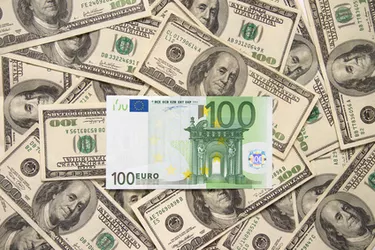
Interest rate swaps are a financial mechanism used by investors to manage risk and speculate on future market performance. In a rate swap, one investor group pledges to pay a fixed interest rate on an investment to another in return for a variable interest rate on the same amount of money. This allows speculators to help other investors solidify their investments.
Rate Increases for Investigators
Video of the Day
Because the return on investments with floating interest rates fluctuates with the market, they’re more difficult to manage than fixed-rate investments. Money managers frequently swap floating rates for fixed rates in a rate swap in order to lock in a rate and allow for planning. If the floating interest rate rises after terms of the rate swap are negotiated, the original interest-stream owner loses out on the increased interest revenue from boosted rates, but only in the difference between the rate agreed upon with the other party in the swap and the floating one. For example, if a rate-swap is negotiated at 6.7 percent interest, and the floating rate rises to 6.9 percent, the original investor doesn’t accrue interest for the 0.2 percent difference in rates.
Video of the Day
Rate Drops for Speculators
Speculative investors trade the predictability and security of fixed interest rate revenue streams for the volatility of floating rate streams predicting interest rates will rise, making the floating rate more lucrative and the investment worth more than the initial outlay. If the floating rate falls, the value of the speculator’s investment decreases, and the investor loses money. For example, trading a $1,000 at 6.5 percent interest rate revenue stream (worth $65 annually) for a $1,000 floating rate stream that drops to 6 percent (worth $60 annually) results in a net loss of $5 annually for the speculator.
Currency Fluctuations
More complicated forms of rate swap mechanisms trade value in two currencies or a combination of interest rates and currencies. These strategies pose the same risks to investigators and speculators--either losing out on additional revenue when the value of one currency rises or losing money when it falls--the combination of currency exchange and interest rate prediction makes international rate swaps a complicated proposition.